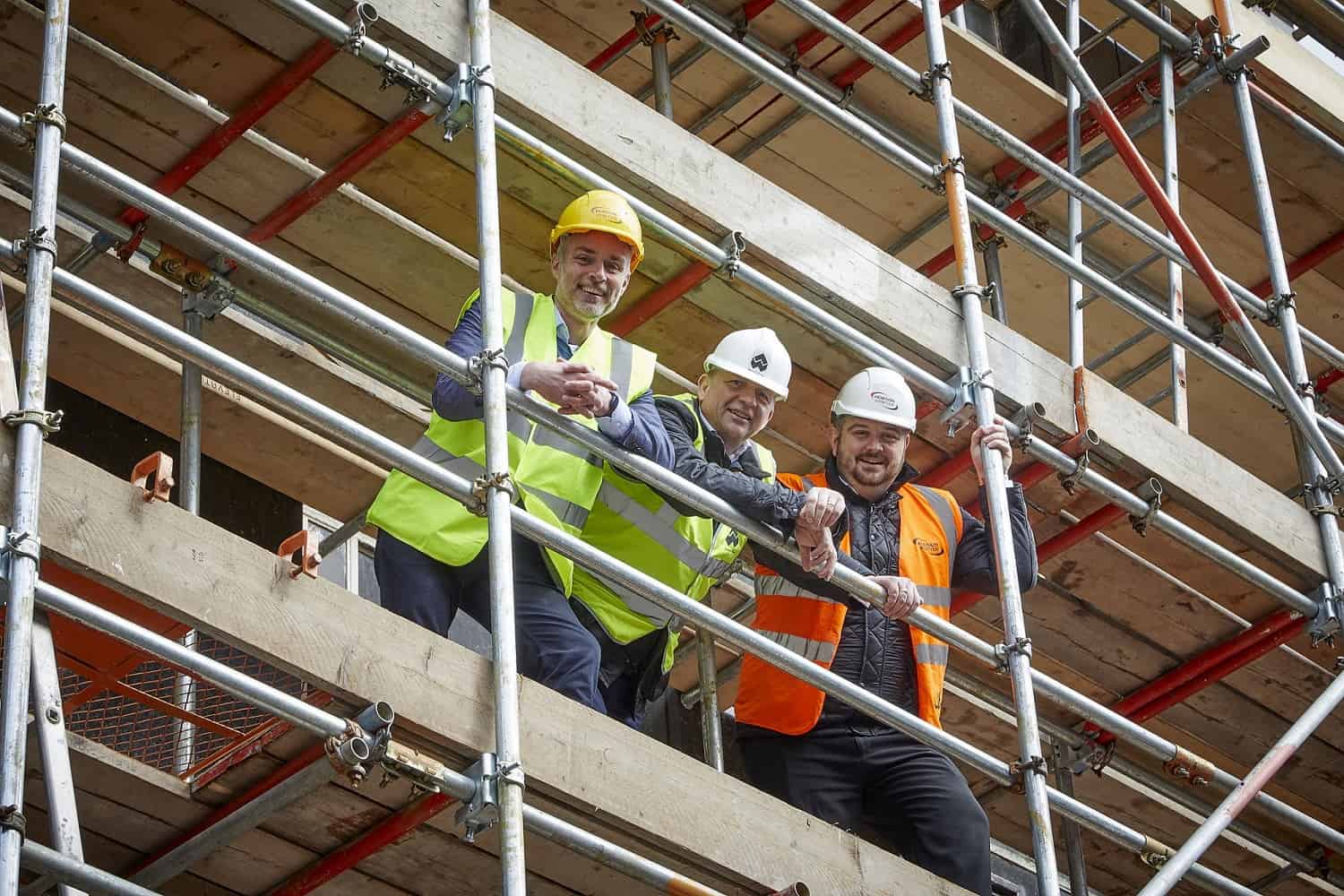An ambitious project to bring Hull’s landmark former Burton building back to its original glory has begun.
Major restoration work on the landmark, Grade II-listed building will see the crumbling granite façade and art deco windows returned to their 1930s grandeur.
The £2.4m restoration project is now underway and is expected to be completed towards the end of this year.
The building’s modern shopfronts will be replaced with new frontages in keeping with the original style and design. The ground floor is being renovated to enable its use as a restaurant or retail outlet, with flexible space available on the upper floors.
The building, on the corner of Whitefriargate and Carr Lane in the city centre, has four floors, plus a basement, with a total of 11,000 sq ft of space. The proposed retail or restaurant area on the ground floor will offer 2,400 sq ft of floorspace, with the first, second and third floors each covering 2,500 sq ft.
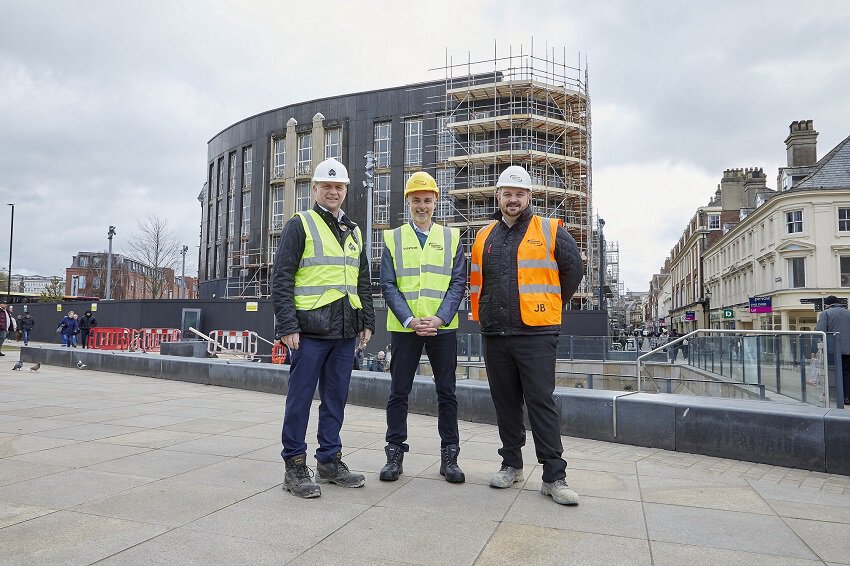
Regeneration specialist Wykeland Group is leading the project, working closely with Historic England and Hull City Council’s Conservation Officer.
The project is being carried out without occupiers lined up, underlining Hull-based Wykeland’s commitment to preventing a landmark building falling into dereliction and bringing it back into sustainable use.
Jonathan Stubbs, Development Director at Wykeland, said: “The start of restoration work marks the opening of an exciting new chapter for one of Hull’s most distinctive and recognisable buildings.
“Since acquiring the former Burton building, our priority has been to deliver a sympathetic, faithful restoration which will bring an important asset back into use.
“This project is an important part of our long-term commitment to the regeneration of the city centre and especially the gateway to Whitefriargate, which links the heart of the city with the Old Town and waterfront.
“It builds on our track record of successful regeneration in our home city, including our part in the transformation of the Fruit Market waterfront area from near dereliction into a thriving, mixed use community.”
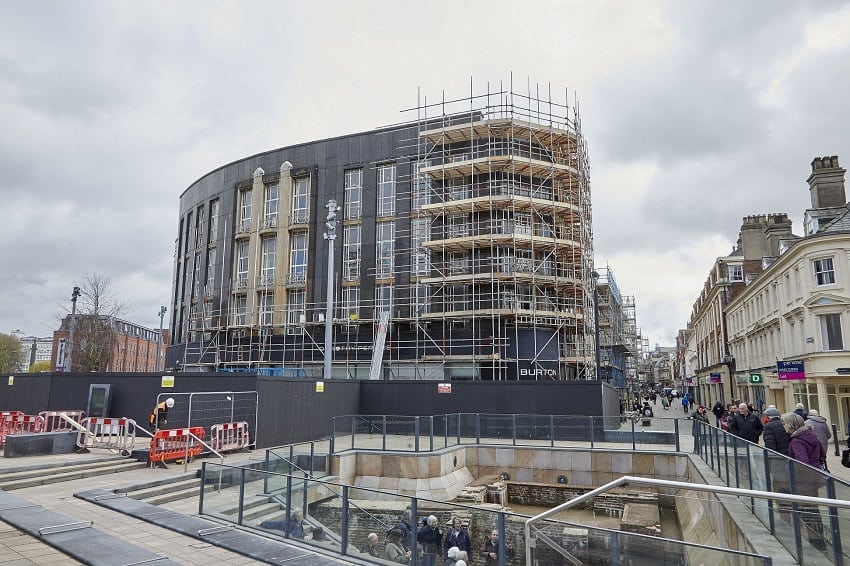
As much as 80% of the granite cladding on the Burton building is damaged. Replacement granite has been sourced from the same quarry in Norway, matching the geographical origin of the original stone, which is in a poor condition.
The art deco windows, which have suffered heavily from corrosion and distortion, will be replaced with new windows which are sympathetic to the original style of the building.
The building’s shopfronts will be enhanced with a new design which reflects historical photos and drawings of the building, dating back to the 1930s, while the original entrance to the store will be reinstated. Three replica art deco-style Burton signs will also be installed in their original locations on the outside of the building, including parapet signage on the roof line.
Inside, significant restoration work has already seen the original lift refurbished, with the parquet floor extensive plasterwork to be undertaken in this next phase of work. The upper floors will see some walls removed to create bright, open-plan spaces.
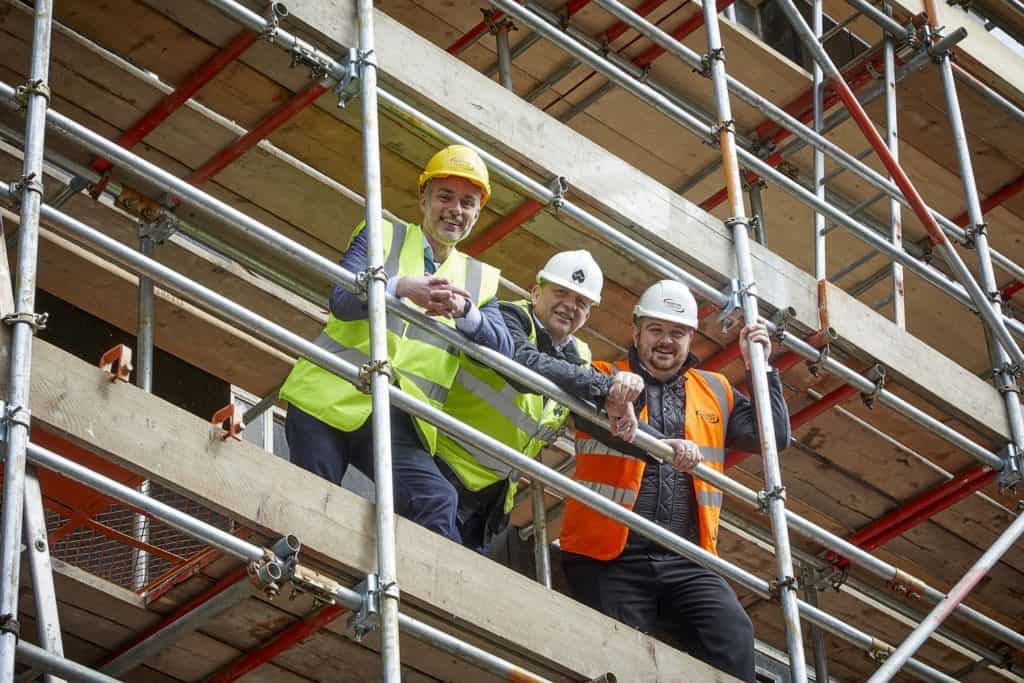
Due to the extent of the restoration work and the building’s listed status, grant funding was essential to make the project viable. The project is being supported by £750,000 from the Levelling Up Fund Grant Scheme, with a further £450,000 grant from Historic England.
Wykeland has worked closely with Hull City Council’s Conservation Officer and Historic England on the restoration of the building.
Cllr Paul Drake-Davis, Hull City Council’s Portfolio Holder for Regeneration, said: “It’s great to see this project finally get underway thanks to support from the council’s Levelling Up Funding scheme.
“The former Burton building is a significant one in Hull city centre and one which will no doubt gain a lot of interest.
“I look forward to seeing it progress and the final project.”
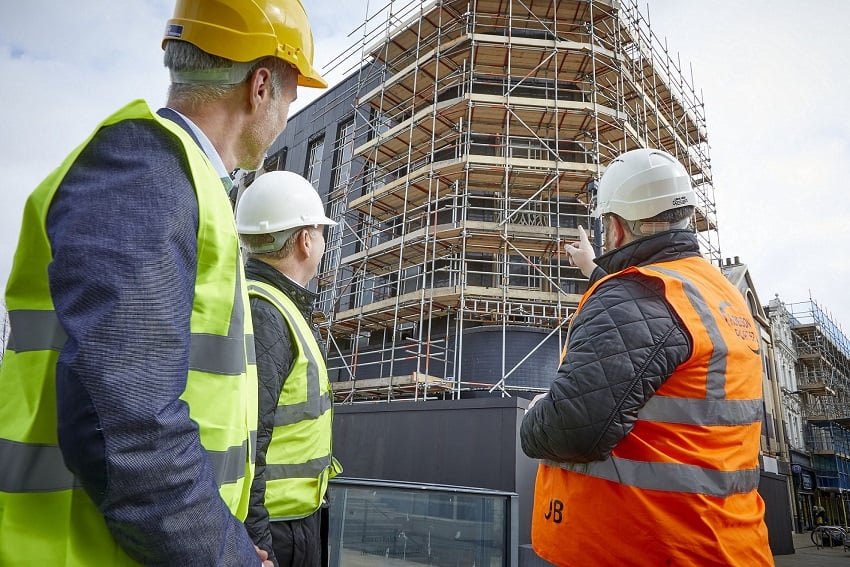
Wykeland has appointed Hull-based construction firm Hobson & Porter as the main contractor.
Joe Booth, Business Development Director at Hobson & Porter, said: “Last year we restored the magnificent Grade II listed building at 52-53 Whitefriargate which was also supported with a grant from Historic England and Hull City Council, and we took great pride in refurbishing such an iconic building.
“Our skilled team and supply chain have therefore relished the opportunity to bring the former Burton building back to its former glory.
“It’s another landmark building that is steeped in history and it would be very sad to lose it, so as a Hull-based business, it’s tremendous that we can play a part in safeguarding its future.”
The Burton fashion empire was founded by Montague Burton, a Lithuanian immigrant who arrived in England in 1900.
The business started out in South Yorkshire and in 1931 Mr Burton bought Nos 34 and 35 Whitefriargate – in those days a chemist shop and a small brewery – for £9,000.
Plans to demolish the existing shop and construct a new building were approved in 1935 and the current art deco landmark – designed for Montague Burton by famed Chief Architect Henry Wilson – opened in December 1936.
When Burton owner Arcadia Group went into administration in 2020, the store closed its doors and the building has remained empty ever since. Wykeland purchased the site in 2021, following the previous purchases of the former Marks & Spencer and Littlewoods buildings in Whitefriargate.
Pictures: R&R Studios
